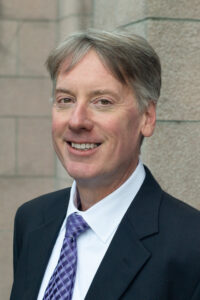
Dear colleagues,
We’re rapidly approaching the end of the academic year, one in which we in Academic and Student Affairs have addressed significant challenges and achieved meaningful impact on behalf of UW students. This was the first year for our new provost, Tricia Serio, who has been learning about the breadth and depth of ASA’s work: Enrollment Management, centralized teaching and learning support, general assignment instructional spaces, academic policy implementation, and more. I would like to thank everyone who took time to brief Tricia on your work and/or answered her questions.
I also want to highlight a few important recent ASA accomplishments:
- Implementing general education curriculum management. Our general education curriculum consists of a collection of courses that undergraduates must take to graduate and serves as a unifying educational experience. General education curriculum review raised the issues of program “coherence” and management. We worked with Faculty Senate leadership on the design and implementation of a new approach to general education curriculum management. This would not have occurred without the notable contributions of Tina Miller, assistant registrar in the Office of the University Registrar, and Jason Johnson, senior associate dean in Undergraduate Academic Affairs. This effort demonstrates both the expertise and collaboration characteristic of ASA’s work.
- Leading tri-campus instructional support. The Center for Teaching and Learning has taken on a tri-campus leadership role in re-envisioning instructional support through the lens of inclusive teaching. Teaching@UW was released this year to provide an access point for instructors on all three campuses to explore the array of resources and support services. This was made possible by Penelope Adams Moon and Katie Malcolm, CTL’s director and associate director; Darcy Janzen, director of digital learning at UW Tacoma; and Deborah Hathaway, director of learning and teaching at UW Bothell, along with support from Marisa Nickle, senior director for strategy and academic initiatives, and colleagues in ASA and UW-IT.
- Renovating Kane Hall. Event Services supports events in Kane Hall, Mary Gates Hall, Johnson Hall, NanoES, and in more than 300 general assignment classrooms. This past year, the seating and carpeting were replaced in Kane 130, the largest lecture hall on campus, making it a more appealing venue for events and classes. The renovation was paid for with rental revenue and did not require funding from the UW’s central budget. In addition, the recharge structure for room usage was redesigned, placing a greater emphasis on gratis room use for academic events. This resulted in roughly $500,000 in savings for academic units. Credit for this work goes to David Nutting, assistant director of Academic Technologies, and his team.
A few challenges are ongoing, including:
- Responding to Free Application for Federal Student Aid (FAFSA) modernization. The Office of Student Financial Aid (OFSA) worked closely with partners in UW-IT this year to manage delays and issues with the federal government’s FAFSA process. The OFSA team also communicated regularly with students to reassure them that their financial awards are still pending and inform them of new timelines as they evolved. This work has been extremely challenging for all colleges and universities and I can say with confidence that Kay Lewis and her team have been national leaders in this effort.
- Managing uncertainty in Admissions. April’s Admitted Student Day was a success by any measure with 7,500 attendees and 326 students accepting their offers in the HUB throughout the day. I met many happy students and their families who are excited about attending the UW. At the same time, delays in offering financial aid packages means many admitted students are still evaluating their options. Fewer students – here and at universities across the nation – have confirmed their enrollment for 2024-25, as compared to this point in time in previous years. But, as the June 1 acceptance date draws nearer, we anticipate the acceptances to increase. While the past five years have been difficult for college admissions with the pandemic, the conversion to the Common Application, and delays in awarding financial aid, Paul Seegert and his team have continued their excellent work to recruit and admit new huskies.
For more accomplishments, check out our new ASA highlights page. Also, be sure to welcome our newest ASA team members.
I appreciate all of your efforts in support of ASA’s mission. Be it a kind word to a student needing support, sharing an accomplishment with a colleague, or successfully launching a project, your efforts large and small make a difference to the UW and the students we serve.
Philip J. Reid
Vice Provost, Academic and Student Affairs
Professor of Chemistry